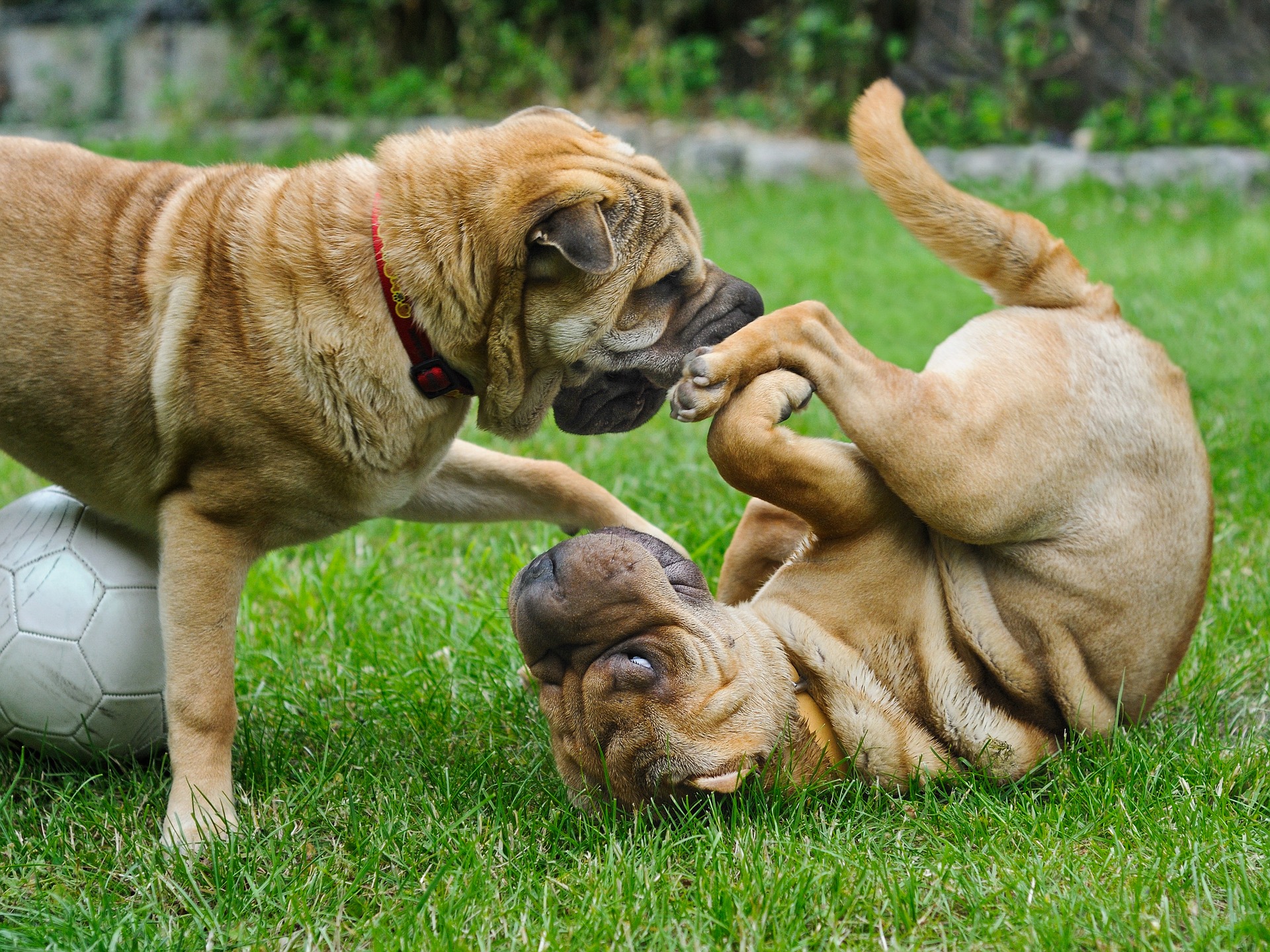It is clear that dogs are highly social animals. Not only do they love being around their humans, but in most cases enjoy having canine friends to run around with.
The age-old debate, however, is if dogs can actually learn from each other. Can an older dog teach a puppy to come when called? Can a well-behaved dog inspire a hyper dog to behave better? The answer is both yes and no. Dogs do not learn as we do, but there are situations where they can certainly pick up behaviors from other dogs around them – for better or for worse.

Dogs Learn in Several Ways
Here are some of the more common types of social learning, and some are more likely than others to work with a dog.
- Mimicking or group-coordinated behavior is scientifically known as allelomimetic behavior. This social behavior draws upon the hardwired inclination of a social animal to mimic members of the social group – to play “follow the leader”.
This is an important factor in a puppy’s earliest learning, as they are genetically programmed to copy others of their kind. An example of this behavior would be if the puppy learns to “Come” when called because he is chasing behind the older dog.
- Social facilitation refers to behaviors performed in a group of two or more. The behavior being performed is intensified because of the other dog – they may both bark at a passing dog, or take off running in the same direction.
It is important to note that although it is possible that your better behaved dog may eventually have an effect on your rowdy one, the opposite dynamic is just as likely. Therefore you should never bring a new dog into a home until the first dog is well trained and under control – and not likely to fall back into bad behaviors.
- Local enhancement draws from aspects of social facilitation, mimicking, and trial-and-error learning. The puppy may learn more quickly to go down the steps or jump in the car because he is trying to follow his companion. However the desire to do the behavior is being learned, the ability to do so is still for the young dog to learn. Still, these behaviors do tend to happen more quickly when there is an example to follow.
What Can’t Dogs Learn From Each Other?
Dog experts differ in their opinions of how much dogs learn behaviors from one another, but one thing is certain. Puppies are more wired to learn from watching older dogs. Instinctually, they are pack animals and eager to learn the ways of their kind. Interestingly, studies have shown that if a puppy observes a behavior at 6-12 weeks, he is usually able to learn it much more quickly even 6 months later.
Unfortunately, when it comes to leash behaviors, housebreaking, or obedience, there is no substitute for a human and a training regimen. Dogs can’t watch another dog being trained to heel, and then perform the behavior. If that were the case, dog training videos would be the hottest selling items in the pet store!
Besides, the most important aspects of socialization and building your rapport with your dog can be achieved through one-on-one training. Dogs learn hierarchy, trust, and obedience only when taught by a loving and compassionate human companion.
That is why at Gulf Coast K9 Dog Training we are so passionate about all aspects of your dog’s life – from puppy training to obedience school for older dogs. The relationship between dogs and humans is one of the most special in the world, and they truly enjoy the time spent with you, even if they are learning.




